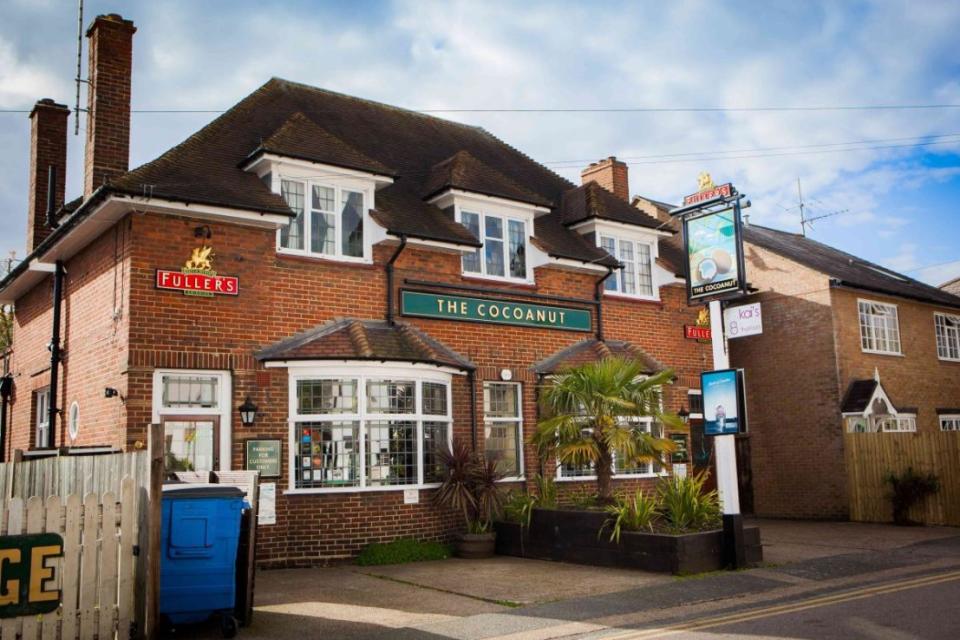Profit jumps at pub group Fuller’s as City workers return

Pub group Fuller Smith and Turner recorded an “excellent year of progress” over the 52 weeks to 30 March as the group continued to recover from the pandemic and cost of living crisis.
Today, the company, which operates a range of pubs and hotels across London and the South of England, reported a seven per cent increase in revenue to £359.1m. However, this was against a 53-week year prior period.
According to the CGA RSM Hospitality Business Tracker, like-for-like sales rose 11 per cent overall, which significantly outperformed the industry average.
The performance of Fuller’s pubs in “urban” locations, mainly central London was particularly strong. The group said like-for-like sales at this part of the business jumped 15.6 per cent, following growth of 32.8 per cent last year.
This strong recovery helped Fuller’s report profit before tax of £20.5m, up 61 per cent compared to the prior period.
Analysts at Deutsche Numis noted the company’s margins have “almost recovered to the pre-Covid level and should be helped by an additional £2m correction in utilities this year.”
The company also hiked its dividend by 21 per cent for the year to 17.75p. The group said this growth continued its return to a “progressive dividend policy.”
Further, Fuller’s laid out plans to buy back the 6.5m ‘A’ shares it issued during the depths of the pandemic to bolster its balance sheet. Since September 2022, the group has repurchased 3m shares at a “30 per cent discount to the 830p price of the share issue.”
The company’s results follow what has been a trying few years for the hospitality industry. The cost of living crisis has hit consumer spending, while wages have jumped, pushing costs higher for pub and restaurant operators.
However, Fuller’s said today that it believes these pressures have finally started to recede. “As of today, those inflationary pressures—especially in regard to food and energy—have reduced, which gives us additional confidence in the coming year,” chief executive Simon Emeny said in the company’s earnings release.
“We have continued to build on the strong momentum of the last year with like-for-like sales in the first 10 weeks of the year rising by 4.4 per cent,” the boss added.
Emeny also told City A.M. the return of international tourists to London had become an “increasingly big part of the business.” He said he expected this trend to continue, as well as the “normalisation” of consumer spending.
Last year, Fuller’s spent £27.2m on its estate, with a number of major schemes completed. This, Emeny said, was the company’s edge. It’s planning to spend another £30m this year when the competition “can’t invest.”
A number of the group’s peers have had to pare back capital spending to focus on rebuilding their balance sheets, but Fuller’s, with its large freehold estate, robust cash flows and low debt, can afford to invest.
“We are able to double down on our investment,” Emeny said. “This is our edge…maintaining that investment in our pubs and maintaining that investment in our people.”
The pub group’s customers tend to be “more affluent and discerning” and demand more, he continued.
The group recently announced the sale of 37 non-core pubs to Admiral Taverns for £18.3m and the sale of The Mad Hatter pub, which is expected to be completed in July 2024 for a total of £20m.
These sales, Emeny added, would allow Fuller’s to continue to reinvest in its estate and hit its four key capital allocation goals: Invest in the business, pay down debt, provide returns to investors and fund select acquisitions.
“We’ve engineered a strong position where we can do those four things,” the CEO explained. Acquisitions would be considered, he added, but would be weighed against “alternative uses of capital.”

 Yahoo Finance
Yahoo Finance 